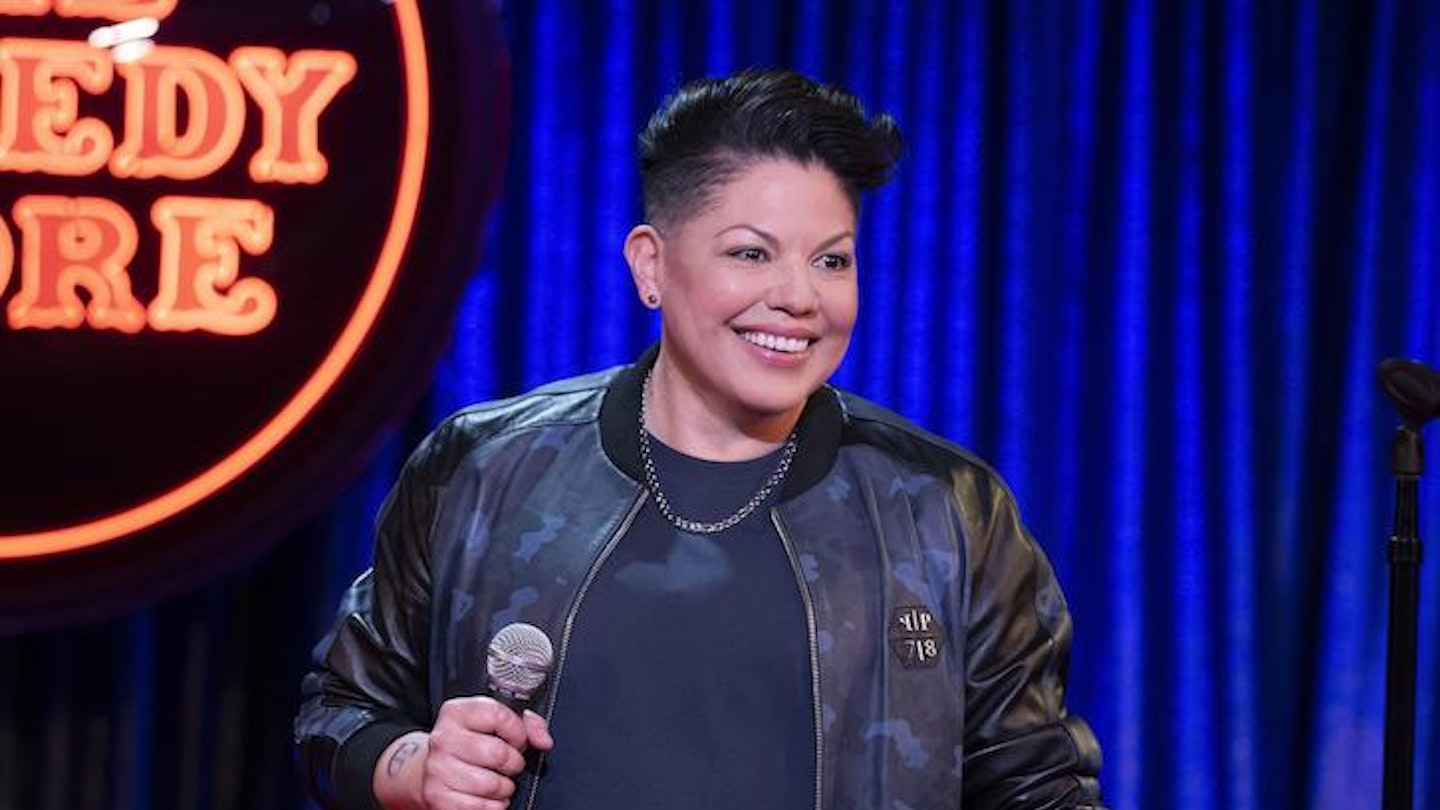Miranda is a redhead again, Carrie is single, Charlotte is the overbearing mother, and everyone is having sex while wearing silky nightwear. That’s right, And Just Like That… has returned for its hotly anticipated second season. And, unfortunately, Carrie and co seemed destined to continue some of season one’s missteps.
One of the most troubling mistakes that refuses to be corrected and addressed, is how the series handles weight, specifically being overweight. It’s no secret that Sex And The City was also guilty of limiting the amount of airtime overweight characters had, as well as depicting weight gain as a fate worse than death – we all remember the shade thrown at Samantha. But when the first episode of season two showed Che struggling with her weight, there was the faintest glimmer of hope that AJLT was about to take a more authentic look at a real issue that many overweight non-binary individuals experience.
Weight bias is rife in all media representation, but when it comes to LGBTQIA+ characters, especially those who are gender non-comforming, there’s a very specific aesthetic that’s championed. Androgynous, slim, short hair, quirky fashion style, effortlessly popular, and, more often than not, creative in some way.
Consequently, audiences outside of the LGBTQIA+ community start to form a specific, restrictive notion of what non-binary looks like, thus helping to continue prejudice and confusion towards gender non-conformity. It’s undoubtedly a multifaceted topic that can’t easily be discussed in all its complexities throughout an entire series, let alone in a five minute segment from a comedy show. Still, the way And Just Like That… dealt with weight and non-binary identity completely missed the mark, not just in terms of resonating with viewers, but in the way it prevented Che from developing beyond the two dimensional caricature of non-binary we endured in season one. Once again, AJLT’s [gender nonconformity representation got it wrong]{href='https://graziadaily.co.uk/life/tv-and-film/ajlt-che-rock-nonbinary-gender-nonconforming-narratives/' }.
After a couple of clues woven throughout the episode – Che’s weight being commented on by the costume department, pushing Miranda away when she touched them – it all came to a head when Miranda stated that something was amiss between the two of them. Che, in a move far removed from the character we’ve come to know, candidly explains that they’ve been avoiding the problem for fear of how Miranda will see them afterwards.
Tearfully, Che then reveals they’re on a diet, before turning away from Miranda and crying into their pillow; it’s such a tender, raw moment for Che that held such potential for character growth. Yet, within a few short seconds, all that was stripped away. Miranda, while holding Che, tells them that they’re the most beautiful person she’s ever seen, to which Che replies “you know what, I am the most beautiful person you’ve ever seen” as they both start to laugh. The chance for an emotional connection beyond surface fluff between these two characters was gone.
Instead of nuance in the form of a conversation this show desperately needs to have, we got a whistle stop tour through the seven stages of grief, all with an overtone of forced humour. It was too rushed, too dismissive. Despite And Just Like That… being a comedy show, it’s been able to explore other serious topics, such as racism, death, prejudice, and coming out, more amply, often as a driving force for larger portions of the narrative. So why did Che’s moment, one which so many overweight non-binary viewers can relate to, get swept under the carpet?
Perhaps it’s too early and unfair to say the show has completely missed the mark on this one already, given how early in the season we are. Nevertheless, the show clearly struggles to find its equilibrium when it comes to weight and marginalised gender identities; it misses the rawness of real life that used to make Sex And The City so relatable.
